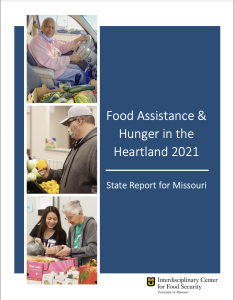by Monica Palmer
In a shocking new development, reports confirm exposure to too much fear-based journalism could drastically impair your judgement.
You’ve probably heard the phrase, if it bleeds, it leads. It’s a pithy, little mantra coined somewhere in the late 80’s, and it sums up the dark truth of what we as a society have asked for from our news outlets.
Today, news is a business, and the primary objective of that business is to sell papers, get more hits or earn higher ratings. So, if these savvy businesses want to succeed, they need to give us, the customers, what we want. We make our demands known through what we watch, read or share.
For the most part, we are no longer moved or motivated by dry, factual accounts of happenings in our world. We respond instead to stories that frighten, anger and otherwise stir up our emotions.
Fear-based news-programming works like this: first, we get hooked with a sensational tease about startling new facts or a danger to life as we know it. Then, we are promised a solution for reducing the identified danger will be given to us if we just read on, click through or stay tuned, which we often do.
The success of fear-based news relies on presenting dramatic anecdotes in place of scientific data, promoting isolated events as trends and depicting categories of people as dangerous to our safety and well-being.
Take for example the story Fox News ran a few years ago about a 29 year-old surfer who boasted about buying lobster with his SNAP (food stamp) benefits. This young man was in no way representative of a typical recipient of SNAP, but the story activated a wave of outrage from hard-working taxpayers who felt like their tax dollars were being wasted on ungrateful people abusing the system. The Fox News piece instilled a fear that this young man’s behavior was indicative of SNAP recipients as a group, and it engendered a feeling of anger and even hatred towards people who use SNAP.
A story like the lobster-loving SNAP-surfer gets broad reach and a lot of attention, because it touches a place of fear and anger. Furthermore, it feels more real to us than researched and proven data. We can read a fact like, “the majority of SNAP recipients are children and seniors,” but because this statistic appeals to our rational and logical mind, it doesn’t hit us at that deep, visceral level.
If a news outlet ran a story about a hard-working, single mother who relies on SNAP benefits to make sure her kids get to eat fresh fruit and veggies at least once a week, we would most likely not remember it the next day. While an article like this certainly holds emotional potential, it doesn’t carry the kind of emotions that would spur the majority of us into any sort of action. This mom’s tale makes us feel bad that good people are suffering. It makes us feel guilty about the leftovers we threw away. It makes us hopeless that we don’t know how to fix the problem. These emotions don’t incite us to rant to our friends or share with our social media network to create even more pity, guilt and hopelessness. Instead, we tell ourselves that we’ll try to donate to the next food drive at church and move on about our day.
Fear and anger are the action emotions. We can yell, scream and demand change if we feel like we’re being wronged, even indirectly, and we work to create a solution to keep whatever is threatening our safety and well-being at bay. Case in point, just last month, legislation was proposed in our state to prohibit SNAP recipients from buying seafood among other things. This move can most-likely be traced back to the SNAP surfer and his lobster that was seen around the world.
Instead of getting angry about what SNAP recipients MIGHT be buying with their benefits, let’s get angry about the fact that we live in a country that wastes billions of pounds of food each year, and there are still kids that go to bed hungry. Let’s get mad about the man who refuses a pay raise, because the additional money he would earn would cause him to lose twice that amount in SNAP benefits, which would send his family back into poverty. Let’s get irate and call our elected officials because we believe food is a basic human right and not a privilege for the elite.
This week as you watch, read or listen to the news, try not to let your emotions lead you away from the facts. Sensational stories may very well be blocking our view of the things we should actually fear the most.

